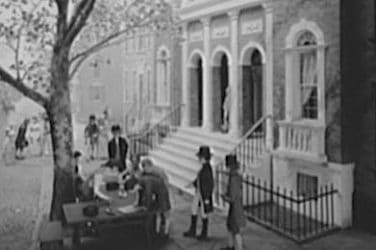Oh options specialist, where have you gone?
Ah, 2009 was the Golden Age of options market making and the specialist compared to now. The participants were more plentiful and while actual volume amounts were lower markups were higher. A firm or specialist could make money in the business and a good living. It could be considered the best of times and the worst of times.

Jason Radzik, BNP Paribas
Now fast forward to the current environment. Implied volatility is historically low, so broker profit margins are almost nonexistent in most trades. Option exchange rules have only made things worse for the dealers, who must post bids and offers in a much more complex market structure that technology has degraded into veritable shooting galleries for ultrafast computers.
Since 2013, the Chicago Board Options Exchange’s broker-dealer community in equity options has shrunk to 40 from about 70. One could say the same shrinkage applies to the other exchanges. According to options traders, there are now only roughly 15 market-makers active.
Against this backdrop, you have more exchanges in the market than ever before. Currently there are 17 venues in operation and another two slated to open shortly. Also, market-making firms s have dropped dramatically from about 60 to just 15.
Is the end near for the options specialist market? The specialist or market maker?
Not so, began Jason Radzik, Managing Director, Head of Americas Derivatives Execution & Clearing at BNP Paribas. In looking back over the last 10 years, he explained to Traders Magazine that yesterday’s biggest institutional clients in the industry that were running pretty significant risk prop books have themselves transitioned into the market making business.
“And that’s, I think, the biggest change in direction you’ve seen in the options business,” Radzik began, “which is those were clients of yours that were basically coming to the broker-dealers and saying, I’ll do business with you if you give us the lowest fees. This flight to zero was the biggest concern that the broker-dealer community had around the nature of the options market, because clients were basically looking and saying, look I’m doing a ton of volume, at what cost? We had this constant flight to zero for large institutional clients with significant volumes.”
And that flight to zero was accompanied by the evolution of technology and the changes of the sophistication of algorithms and platforms. Given this influx of technology, clients migrated to become true liquidity providers and market makers.
“They’ve transformed that whole business model. And now the flow is going back from the broker-dealer community to them, because they’re now the market makers,” Radzik said. “They’re the ones now that are taking those pools of liquidity and making markets. And consequently, making small spreads off that volume. It’s been a complete, if you think about it, flip and reversal of the nature of the options market over the last 10 to 15 years.”
But is market making or the specialist business still a money-making business?
First, one must look to history for some guidance. Back in 2009, options trading volumes were lower but the aforementioned spread or margin was much higher thus giving birth to this type of trading model. Now the converse is true – trading volumes are much higher but the spreads or margins per trade are much smaller.
You would take a pretty large spread for a trade then, one day of commissions then could exceed months of commissions today. The model of higher spreads with lower volume worked well for the options specialists,” Radzik said. “The evolution of the options market has followed a very similar path to the evolution of the equities market. The higher volumes of today in the options market has allowed for the lower spread market making model to thrive.”
And also similar to equities, the list of market makers or specialists have decreased. According to several traders, the top 3 options market makers, such as Citadel Securities and Susquehanna, account for almost 60% of trading volume.
“So, what you have here is that shift from your traditional broker-dealers to, again, these more sophisticated institutional clients that have now established themselves with market-making businesses,” Radzik said.
The following article appeared in the 2005 edition of Traders Magazine
Are Options Specialists an Endangered Species?
By Gregory Bresiger
It’s a bad time for options specialists and specialists in general.
LaBranche & Co., a bellwether specialist firm, reported poor first quarter earnings-$2.2 million versus $6.9 million for the same period of 2004. But, more importantly, several options exchange officials are pushing for rules that would allow brokerages to route orders to a designated market maker. That move is having a dramatic effect, said one exchange official.
“What has changed so much in the options business is how few firms are left in the specialist business and how few independent market makers are left,” Meyer “Sandy” Frucher, chairman and chief executive of the Philadelphia Stock Exchange, told Traders Magazine.
Despite continuing tough times for specialists, Frucher said some will survive and prosper. But, he added, that they “must evolve to become both specialists and market makers.”
That, Frucher noted, will mean firms must be both liquidity providers and have superb technology.






